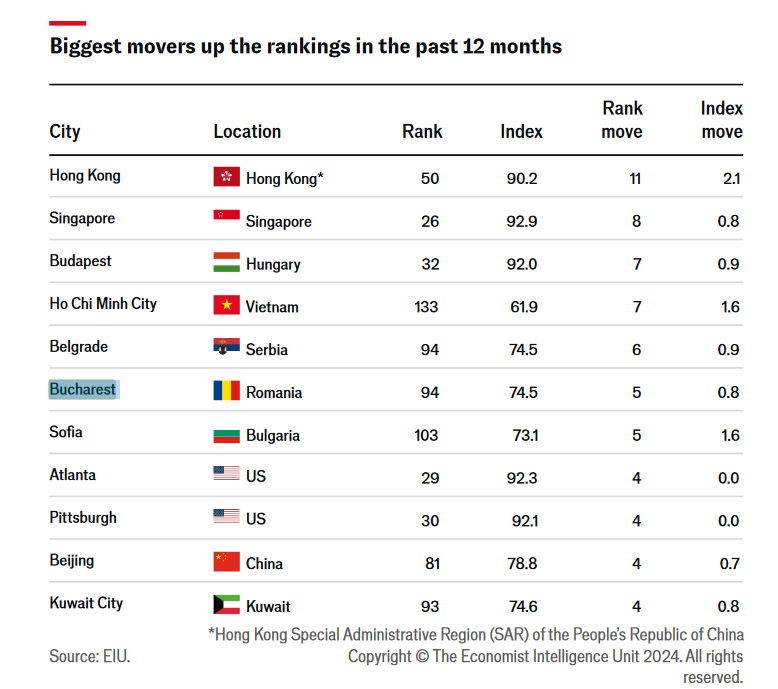The Global Liveability Index is an annual assessment published by the Economist Intelligence Unit (EIU). This index ranks cities worldwide based on living conditions, using criteria such as stability, healthcare, culture and environment, education, and infrastructure.
For this year, the index ranks the livability of 173 cities across five key categories: stability, healthcare, culture and environment, education and infrastructure. This year’s survey saw a rise in average scores, driven by gains in healthcare and education across developing countries. However, this has been largely offset by declines in scores for several top-tier cities.
While Vienna remains the city with the best living quality, Bucharest was also noticed because it is at the top of the cities with the highest growth yearly. Now it occupies the 94th place, rising five positions.

Bucharest has increased its rankings, benefiting from critical areas such as healthcare, infrastructure, and education enhancements. Care for the environment and decreasing pollution and traffic jams have played a significant role, contributing to a general improvement in global livability scores.
These advancements highlight the city’s ongoing efforts to enhance the quality of life for its residents, making it an increasingly attractive place to live, work, and invest.
The cost of living in Bucharest is an affordable one. Bucharest offers affordable living, with monthly housing costs ranging from $300 to $700 for a one-room apartment, depending on location. Monthly expenses for transportation, utilities, groceries, and dining out remain relatively low, making it an attractive destination for expats, tourists, and digital nomads looking for a balance of modern amenities and cost efficiency.



